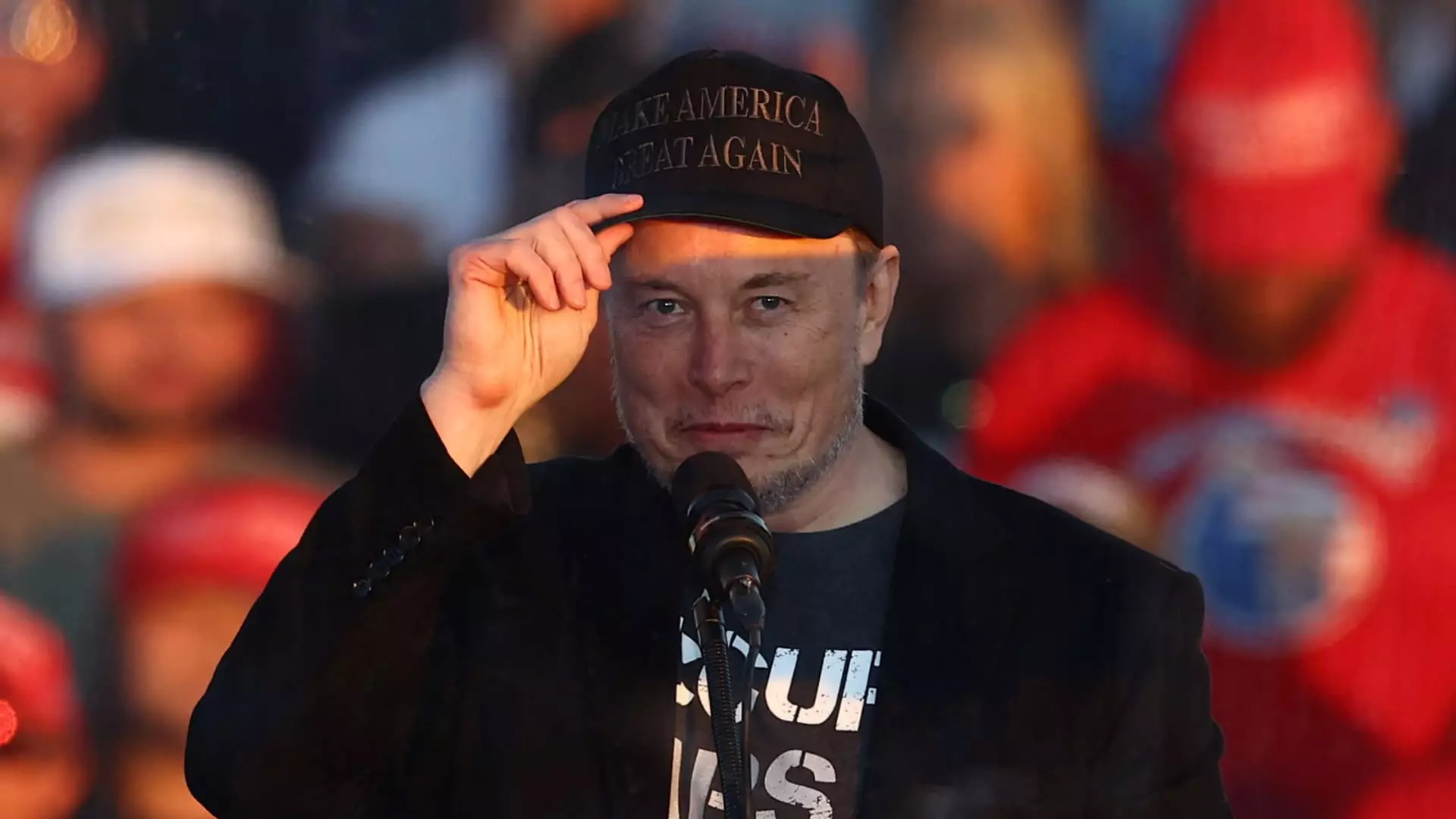In recent months, the political landscape in Europe has witnessed unprecedented intervention from unlikely figures, one of whom is Elon Musk, CEO of Tesla and SpaceX. Musk, known for his ambitious ventures in technology and space exploration, has also become a focal point of controversy with his vocal political opinions. His endorsement of Germany’s far-right political party, Alternative for Germany (AfD), has raised eyebrows and sparked debates about the intersection of mega-donorship, social media influence, and political ideologies. By publicly announcing that “Only the AfD can save Germany” on a platform he owns, Musk is not merely sharing an opinion; he is wielding significant influence over millions of followers, igniting discourse and dissent alike.
Musk’s remarks about the AfD did not occur in a vacuum. They were made in conjunction with a post from Naomi Seibt, a well-known far-right influencer who has faced accusations of promoting white nationalist ideologies. The synergy of Musk’s endorsement juxtaposed with Seibt’s extremist narratives serves to amplify dangerous rhetoric that could legitimically alter public opinion toward extremist parties in Germany. Politicians like Senator Chris Murphy have not hesitated to criticize Musk, labeling him an “out of touch billionaire” while highlighting the alarming rhetoric associated with the AfD—such as its leaders’ references to Nazi ideology. Such sentiments raise critical questions about the social responsibilities of influential figures like Musk, who possess the platform and resources to shape political narratives.
A Snapshot of Germany’s Political Climate
Musk’s intervention comes against the backdrop of a tumultuous political environment in Germany. Following the collapse of Chancellor Olaf Scholz’s left-wing coalition, the AfD has seen a notable surge in popularity, currently polling second ahead of upcoming elections. Despite the general reluctance of established parties to form coalitions with the AfD—largely due to its nationalist agenda—the party’s ascent signifies a broader trend toward far-right ideologies not just in Germany, but across Europe. Public sentiment appears to be shifting, as exemplified by the growing acceptance and normalization of far-right rhetoric, to which Musk’s social media usage adds an additional layer of complexity.
Furthermore, the implications of Musk’s endorsement stretch beyond the political domain into economic discussions. The AfD has been outspoken against Musk’s Tesla operations in Germany, arguing that the company’s presence offers limited economic benefits to local communities due to its reliance on a transnational workforce. This perspective amplifies existing tensions surrounding globalization and domestic job security within the EU, particularly as far-right parties exploit economic anxieties to bolster their political platforms. Such arguments may resonate with segments of the population skeptical of both immigration and foreign investment, thereby consolidating the AfD’s support base.
Musk’s endorsement of far-right leaders is not confined to Germany. His vocal support for populist politicians such as Italy’s Giorgia Meloni and the UK’s Nigel Farage illustrates a deliberate alignment with right-wing figures in various parts of the globe. This trend raises concerns about the potential for cross-border ideological contagion, wherein the normalization of right-wing platforms in one region influences similar movements elsewhere. As Musk’s endorsement gains traction, it might embolden other populist entities while subtly shifting the public’s perception of extremist ideologies.
The implications of Musk’s actions resonate far beyond Germany’s borders. As political landscapes continue to shift dramatically, the responsibility borne by influential figures must be underscored. With power comes the need for accountability, particularly when social media platforms serve as megaphones for extremist ideas. While Musk’s ambitions in the tech world are commendable, his foray into the murky waters of political advocacy calls for a critical examination of the values that underpin his declarations and how they shape the political discourse today.

